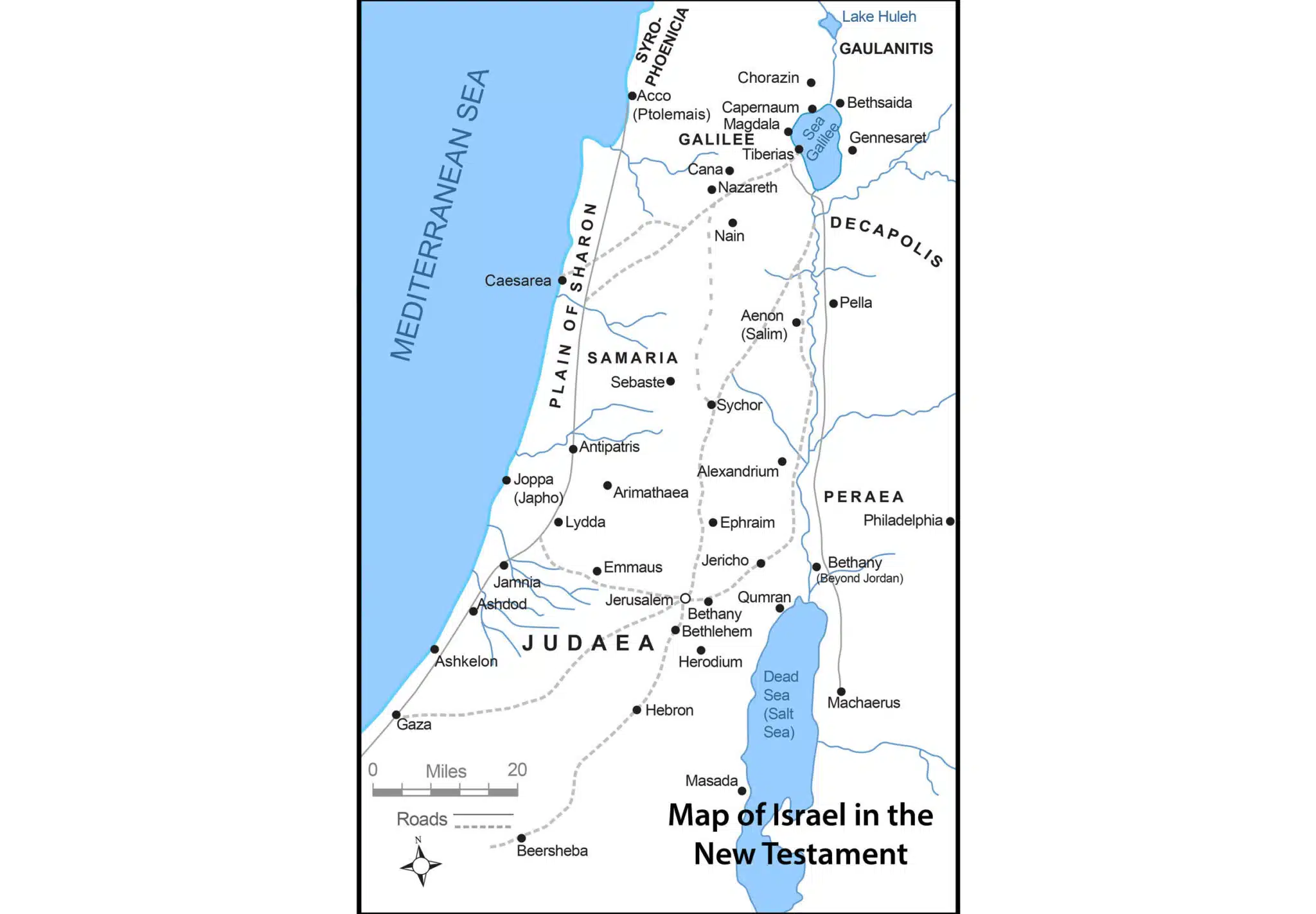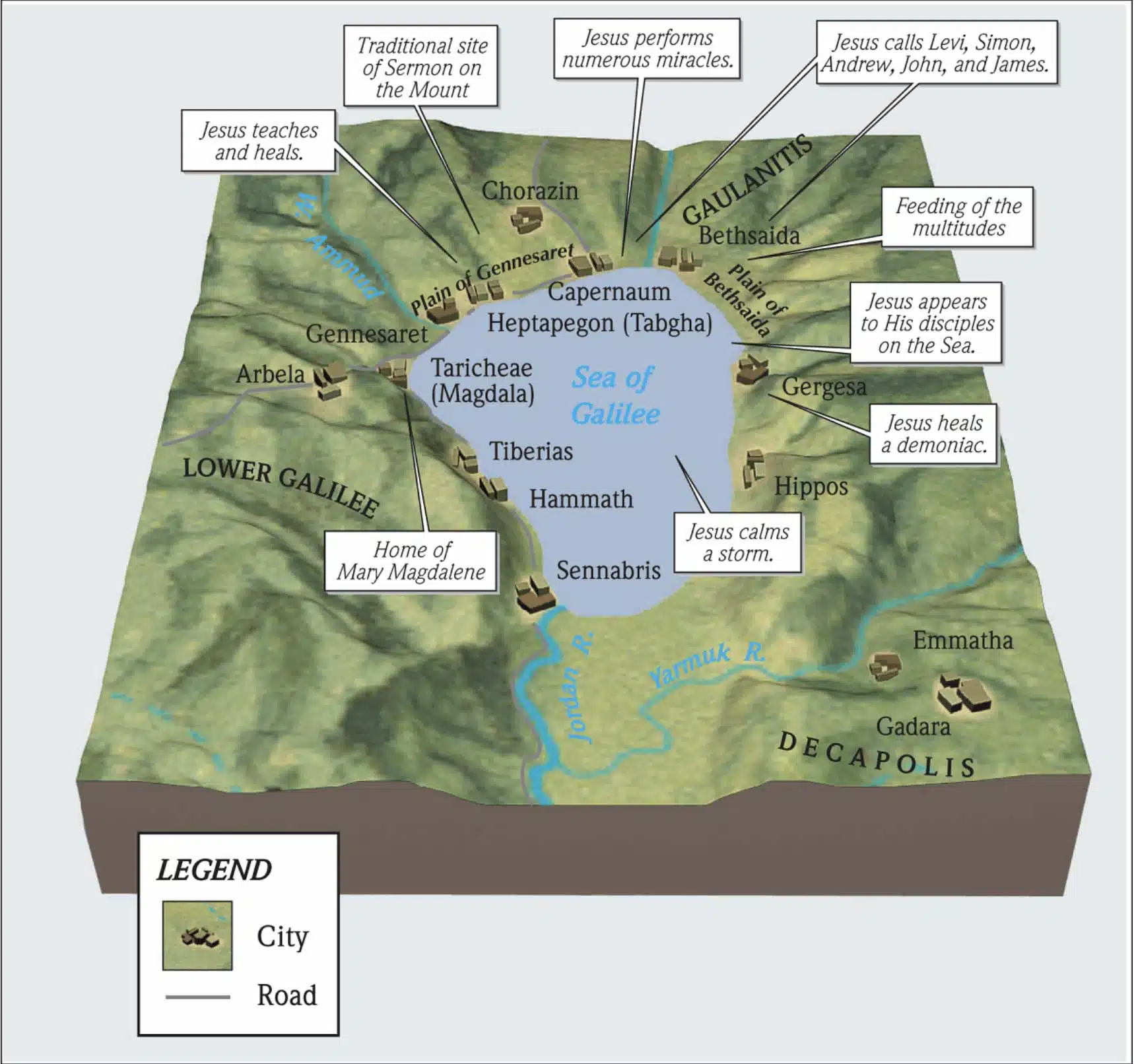Luke 23 Commentary
Please choose a passage:
Luke 23:1-2
Not permitted to execute Jesus themselves, the Sanhedrin brings Jesus to Pilate early in the morning for His Roman or Civil Trial.
Luke 23:3-7
Pilate follows up on the charge of insurrection and interviews Jesus, asking Him if He is the King of the Jews. Jesus replies, “It is as you say.” Pilate finds nothing in Jesus’s answer to convict Him, so declares His innocence.
Luke 23:8-12
When Jesus first arrives in Herod Antipas’s court, the tetrarch is greatly pleased because he has been wanting to see the miracle worker perform a sign. When Jesus remains completely silent, Herod’s demeanor shifts to contempt and he leads his court in mocking Jesus, dressing him in a fine robe as a joke, and then returns Him to Pilate.
Luke 23:13-16
When Jesus is returned from Herod to Pilate, the Roman governor summarizes the events of the civil trial thus far. He restates the verdicts. Jesus was not guilty of the charges as declared by both Pilate and Herod.
Luke 23:17
Luke interrupts his narrative of the third phase of Jesus’s civil trial to mention an obligation the Roman governor had to the people of Judea. Each year the governor of Judea would release one prisoner during the Feast of Unleavened Bread.
Luke 23:18-21
The crowd responds to Pilate’s offer to use the governor’s “Passover Pardon” on Jesus by shouting at Him to give them Barabbas instead. Barabbas had been imprisoned for insurrection and murder.
Luke 23:22
Pilate attempts to release Jesus a third time and asks the crowd (who is demanding Jesus’s crucifixion) “Why, what evil has this man done?” No response is recorded. Pilate then reiterates Jesus’s innocence and tells the crowd that he will punish Him (by Roman flogging) before releasing Him.
Luke 23:23-25
The crowd was insistently loud in demanding that Jesus be crucified. Eventually their voices began to prevail so that Pilate granted their wishes. He released Barabbas for them, but gave Jesus over to their murderous will.




